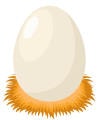
Helping chicks hatch is definitely an issue that goes to the heart with artificial brooding.
The question is, by what circumstances do some chicks not hatch successfully from the egg?
Are they weak animals? Genetically conditioned? This is how Mother Nature actually selects reasonably.
Because a weak chicken, for example, is usually not sufficiently viable.
Malformation occurs and it will always be the problem child.
Not only that. Bullying and cannibalism can also result from weak, malformed chicken chicks in the entire group!
Still, there are circumstances where it might make sense to help a chick or two hatch.

Content
Commercial breeder or hobby breeder?
It is important to distinguish whether you are a commercial breeder or a hobby breeder?
If you plan to breed poultry or similar, be aware that if you help some chicks, they are usually not suitable for further breeding.
After all, there is a fairly high probability that the chicks are weak or malformed.
Chicks that you help and also survive, you should therefore immediately mark differently and not continue to breed with you.
Because if you continue breeding with the possibly genetically weaker chicks, you can thereby put your complete future breeding line in danger!
As an hobby breeder, your perspective on this subject may change somewhat.
As a hobby breeder, you definitely have more time and overview to take care of any worries that may arise.
However, aiding hatching does not necessarily mean that the chicks will always be weak or malformed.
The probability is just higher that it can happen that way!

The question of all questions, who is in charge?
Who is responsible now? Mother Nature or you, the incubator?
Well, due to genetics and the circumstances that malformations or maldevelopments can occur, this is part of the nature of things.
Sometimes it can also be that the parents were poorly fed or sick.
You, as the incubator, must face the responsibility of creating the most optimal conditions possible.
You will have to live with the rest of what happens or intervene at your own discretion.
It is important to criticize oneself from time to time, simply to learn from one’s own mistakes or by observing.

How to help the chicks hatch
High humidity in the hatching phase
High humidity during the hatching phase makes it easier for the chicks to hatch.
This is because high humidity keeps the eggshell a little softer, and the chicks can break through more easily.
At the same time, it prevents the inner eggshell from drying out and prevents the chicks from sticking to the eggshell during hatching.
Chick sticks to the eggshell
Has a chick broken through the eggshell but is stuck to the rest of the eggshell after a long struggle?
Then you can try to moisten the inner side of the eggshell with lukewarm water.
A pipette, syringe (without needle) or small spray bottle is best suited for this purpose.
The chick should then continue to do the rest on its own.
Did the chick just peck through the egg and not manage to break through?
The egg is pecked, but you can observe that a chick does not manage to break the egg shell with its head?
A difficult decision.
One way to help would be to carefully remove half of the shell with tweezers and gently push the egg skin back.
Then wet the inside of the egg shell and let the chick sit in the remaining half of the egg, also giving the chick time to retract the yolk sac.
That could well be help enough.
One chick turned around after pecking in the egg
It is so that chicks always hatch on the blunt side of the egg.
Why?
That’s where the air bubble is, plus the blunt side of the egg is also more porous and easier to destroy.
Whether a chick instinctively realizes that it itself is upside down? These are open questions that cannot be answered so easily.
However, the chick needs air to breathe. Often, the upside-down chicks suffocate, because sometimes out of exhaustion you do not manage to peck a second time.
Has a chick turned around after pecking, for whatever reason, and you want to help that chick?
Then you can try to carefully open the other side of the egg with tweezers, and only until they are convinced that the chick gets air to breathe.

In conclusion:
Help is not always and everywhere rewarded with gratitude. Helping a chick to hatch is a difficult decision.
You may or may not succeed with it.
You must not forget to take a critical look at yourself. Also in the sense of what may come to you or what you can expect if you help.
If you have created a flawless environment for artificial incubation, you may need to look elsewhere for causes. For example, the parent animals.
Otherwise, the selection of nature also takes its course.
Also see the hatching instructions on this page and use the printable hatching plans.

